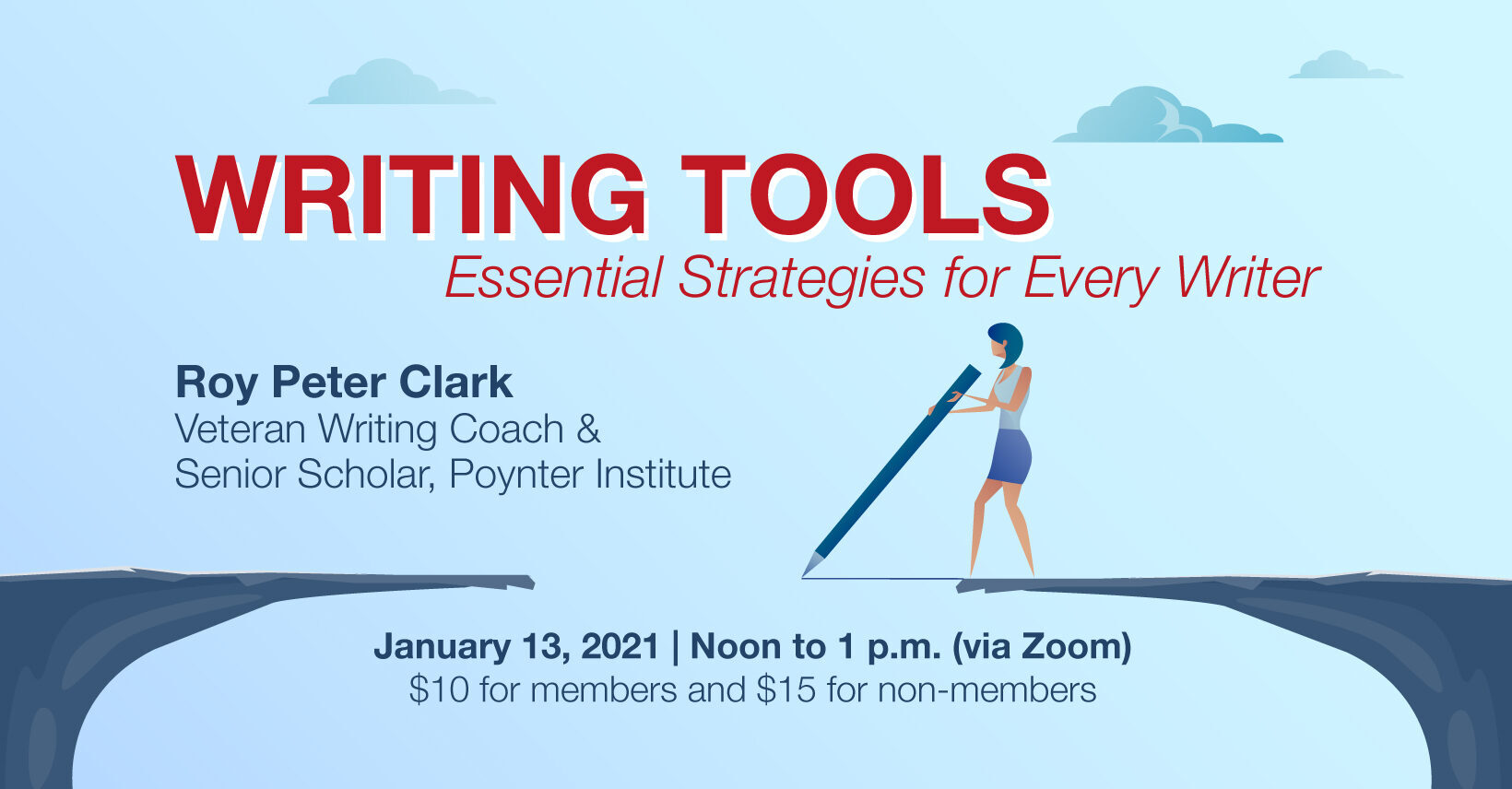
As a communications professional, writing is part of the job. So, how can you refine your skills? We invited “America’s writing coach” – Roy Peter Clark – to speak at our January professional development event and provide some valuable insights and techniques to our members.
As the author of 19 books, Clark said he thinks of himself as a public writer and “pandemic has demonstrated the need for excellence in public communications.” This applies regardless of industry and whether you work at a public company, private entity or non-profit.
Here are some tools that Clark suggested are most appropriate for this time and place in society:
Use the simple over the technical
With so many complicated things going on in the world today, think about how to make hard facts easier to understand for your audience.
Try in your writing to achieve “civic clarity.” Put this into practice by taking responsibility for what your audience knows and understands about your issue, company, etc. Break longer sentences into shorter, smaller sentences to help with ease of understanding. The period at the end of the sentence helps slow down and control the pace of the information being presented to the reader.
Order words for emphasis
Most writing is frontloaded with the important information up front. However, Clark suggests thinking about how to make your writing more interesting and better. One way is to place strong words at the beginning and end of sentences and paragraphs; additionally, think about placing the best words in the best order.
This particular technique will also help improve your reading too. Clark saves texts/articles that really stand out to him. He then examines these to see what tools and strategies are being used. One of his favorite examples is the story of Herman the Chimp, which uses emphatic word order.
Use white space
What marks the end of a paragraph? White space. According to Clark, “this is crucial. If there’s not enough white space and paragraphs are too long, the reader will perceive that it’s too difficult to read.”
So, aim for medium-length sentences and paragraphs.
“If the end of the sentence is a hot spot, the end of a paragraph is even hotter,” said Clark. “Don’t hide important information in the middle.”
Be careful with SEO
SEO can be a stumbling block. While it’s important, it can impact the effectiveness of your writing and overall style. So, don’t pack your writing with words that just act as click-bait.
Edit your work
When writing, it’s ok for the first draft to be a quick first pass, with the focus just on accuracy. However, when the stakes are higher, more drafts are often more important. Clark suggests after writing your draft, let the text cool off before you read it for review. The colder the text, the more you will see in the editing process.
Want more tips?
If you enjoyed these writing tips, you may also want to consider purchasing some of Clark’s books with additional writing strategies:
· Writing Tools: 55 Essential Writing Tools for Every Writer
· Glamour of Grammar: A Guide to the Magic and Mystery of Practical English
· Help for Writers: 210 Solutions to the Problems Every Writer Faces
· How to Write Short: Word Craft for Fast Times
In addition, Clark teaches virtual workshops with Tombolo Books.
If you were an event attendee, a recording has been made available. Please contact info@cwcfpra.com for more information.
